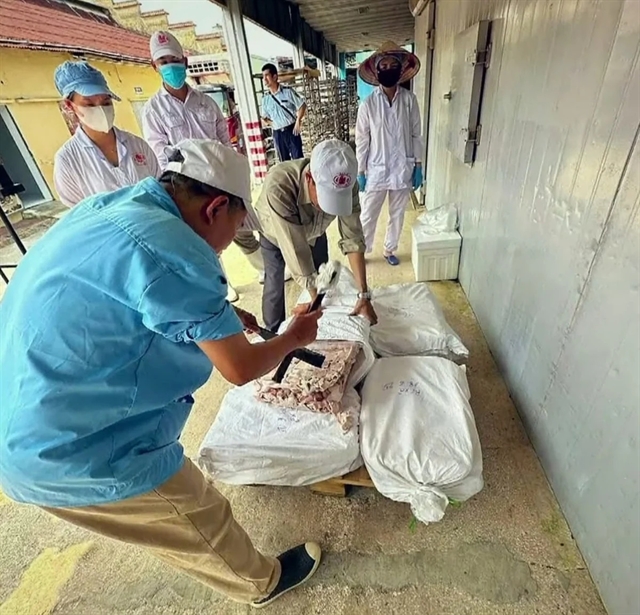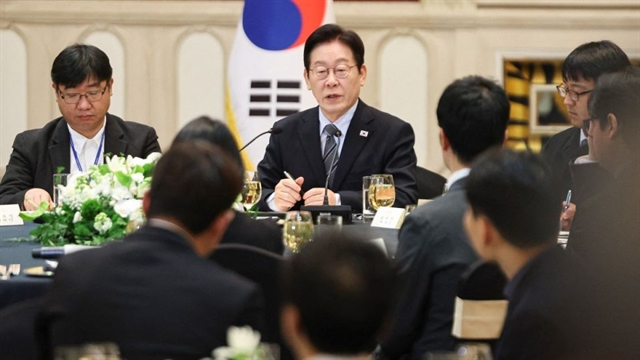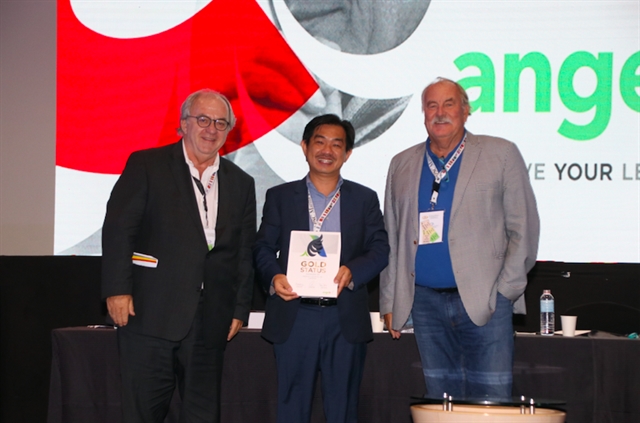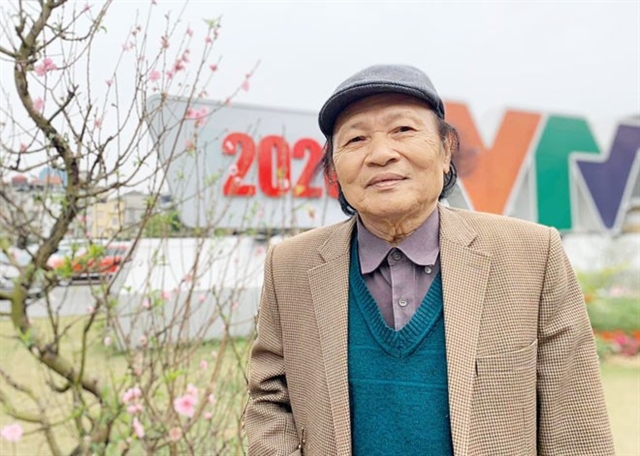 Society
Society


|
| Dr Nguyễn Huy Thắng, one of the Steering Committee members of the Angels Initiative in Southeast Asia & South Korea and president of the HCM City Stroke Association, receives the WSO Angels Awards. —Photo courtesy of the Angels Initiative |
HCM CITY — The Angels Initiative, a programme by healthcare company Boehringer Ingelheim in partnership with the European Stroke Organisation and the World Stroke Organisation, is seeking to increase the number of hospitals providing stroke care.
The programme works to improve care for people who have just suffered a stroke, providing hospitals with the resources and support they need and training for their doctors and staff.
Every country in which the programme is present has an Angels consultant team that supports hospitals with stroke care improvement programmes.
A hospital is considered stroke-ready when it has standardised processes which ensure that treatment is provided within 60 minutes of a patient arriving at the hospital.
In Việt Nam, the programme is working with the Vietnam Stroke Association and the HCMC Stroke Association with support from the Vietnamese Society of Emergency Medicine and the Ministry of Health.
Two and a half years after Angel’s launch in Việt Nam in 2017, the number of hospitals with stroke-capable units has increased from 44 to 72.
So far nearly 6,500 stroke patients have been provided with care.
Dr Nguyễn Huy Thắng, one of the steering committee members for the Angels Initiative in Southeast Asia & South Korea, spoke about the outcomes at the 2019 Asia Pacific Stroke Conference held in Manila, the Philippines on October 5.
The conference discussed the stroke care situation around the world, improving outcomes via the Angels initiative and plans to improve stroke care in the Asia Pacific.
Standardised checklists for ready use by stroke teams have been localised with relevant details for paramedics, emergency nurses, stroke physicians, and stroke nurses in Việt Nam.
Seventy three standardised stroke bags have been delivered to hospitals to enable their stroke teams to treat patients in their CT rooms.
According to health experts, treating a stroke is extremely time sensitive since up to two million brain cells die every minute if a stroke patient is left untreated.
In Việt Nam, stroke is the number one cause of mortality.
According to statistics from the HCM City Stroke Association, there are around 200,000 cases of stroke each year in the country.
The mortality rate for this disease surpasses those of other serious illnesses such as cancer and cardiovascular diseases.
Prof Dr Michael Brainin, president of the World Stroke Organisation, said: “There are more chances that an outcome will be most favourable when a stroke patient receives care within 60 minutes upon arrival at the hospital.
“These patients are more likely to become independent and have a higher possibility of going back home after surviving the disease.”
RES-Q is a quality measurement recommended by Angels and the World Stroke Organisation to provide a way for hospitals and countries to develop and compare national and international benchmarks for stroke treatment.
Its goal is to develop a new registry to monitor the most important quality measures in stroke care.
Providing feedback on stroke care performance establishes motivation for hospitals and physicians to improve care quality.
In Việt Nam, 14 hospitals are participating in the RES Q registry. With feedback from the data, stroke care quality in these hospitals is well managed and consistently improving.
At the conference, the first WSO Angels Awards were given to hospitals in recognition of strong improvements in their stroke care for patients.
Việt Nam had three hospitals getting the awards, People's Hospital 115, University Medicine Center and Đồng Nai General Hospital.
Thắng, president of the HCM City Stroke Association and head of the cerebrovascular department at the People's Hospital 115, said: “To receive the award, participating units have to update all treatment data every day. The recanalisation rate of those stroke-ready units has to be higher than the standard rate of 5 per cent.” —VNS




